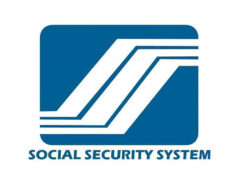Bocaue Toll Plaza
NLEX Corporation has carried out improvements in its operations to provide convenience to motorists this holiday season and during this transition to cashless toll payments.
“We are working closely with our national and local government partners to quickly resolve technical and traffic concerns at the NLEX,” said NLEX Corporation President and General Manager J. Luigi L. Bautista.
In a communication to the Department of Transportation (DOTr) and Toll Regulatory Board (TRB) headed by Secretary Arthur P. Tugade, the tollway company said among the measures are the reopening of cash lanes, the transfer of RFID installation and reloading transactions away from the toll plazas, and enhancement of traffic management and customer assistance. NLEX also committed to intensify its RFID sticker replacement program as well as accelerate the customer communication campaign on reloading the RFID accounts to prevent delays at the toll gates.
Toll lanes currently marked “Emergency” are now acceptingcash toll payments to cater to infrequent expressway users specially as the Christmas season nears. To date, average daily RFID usage at NLEX-SCTEX stands at 86 percent.
Meanwhile, for the smaller toll plazas, where toll lanes are limited, an exclusive RFID lane beside a combined cash/RFID lane has been put up.
“As an interim measure during this transition to 100% RFID, we will allow cash payments in all toll plazas. About 15 to 20% of our lanes will be cash lanes. For instance, in Balintawak, we will assign around 3 or 4 lanes for cash users,” Bautista noted.
RFID sticker installation will no longer be done at the toll gatesand were moved earlier to nearby areas inside the expressway. Motorist requests for reloading will be no longer be entertained at all toll gates, except at the major toll plazas in Balintawak and Bocaue. Instead, motorists will be directed by NLEX RFID lane assistants to other areas where the reloading transaction can be done without blocking other motorists.
In anticipation of the traffic surges, NLEX will conduct a timed “barrier up” operation in the RFID lanes and keep the barriers raised so that RFID customers need not stop even as the RFID sensor/scanners continue to record the toll transaction.
Bautista said the company is also looking at increasing the RFID sensors’ wattage at the toll lanes and is currently in discussions with the National Telecommunications Commission (NTC).Meanwhile, to address near term road capacity constraints, a reassessment of the Karuhatan interchange toll plaza is ongoing, and proposal/recommendation will soon be submitted to the TRB.
The tollway company is also facilitating hardware and software updates as part of the ongoing regular technical review and system audit and ensure the quality of RFID stickers. It is also intensifying its information dissemination on the sticker replacement program and reloading options via direct communication to subscribers, distributing communication materials, and posting on social media.
To better guide motorists at the toll plazas, NLEX continues to deploy around 270 RFID assistants equipped to handle RFID sticker scanning issues at the toll lanes with handheld RFID devices. These RFID assistants will also guide new RFID customers on how to use the contactless Easytrip card readers, if necessary. Patrol crews and traffic marshals are fielded to manage the flow of vehicles at the plazas and interchanges.
“We are committed to continuously look for ways to improve our service to the public—providing reliable, safe, and convenient expressway travel experience to our motorists, host communities, and other stakeholders,” Bautista pointed out.





